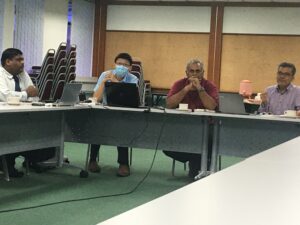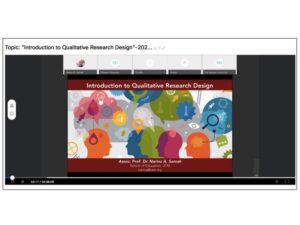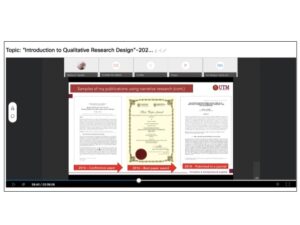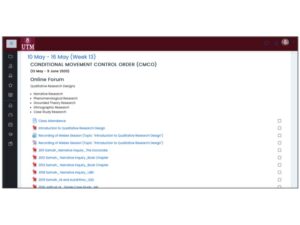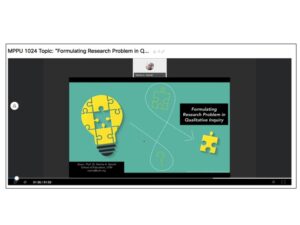This afternoon I delivered an online talk entitled “5 Self-Critical Enquiries in Doing Literature Review” to undergraduate students who are preparing for their Final Year Project (PSM). During the session, I was assisted by Dr. Noorzana who acted as the session moderator.
During the talk, as budding researchers, I encouraged students keep engaging themselves with the following self-enquiries:
Enquiry #1: What is a literature review (LR) actually?
Enquiry #2: Why are literature reviews necessary in my research?
Enquiry #3: How would LR help me in my research?
Enquiry #4: What are the steps necessary to prepare my LR?
Enquiry #5: How would I present my Chapter 2?
I’d also prepared a Padlet activity to make the session more interactive. All in all, it was a fun session with the undergraduate students, whom I rarely have the chance to interact with (and knowing that one of them was listening to the talk while baking kuih raya…)




